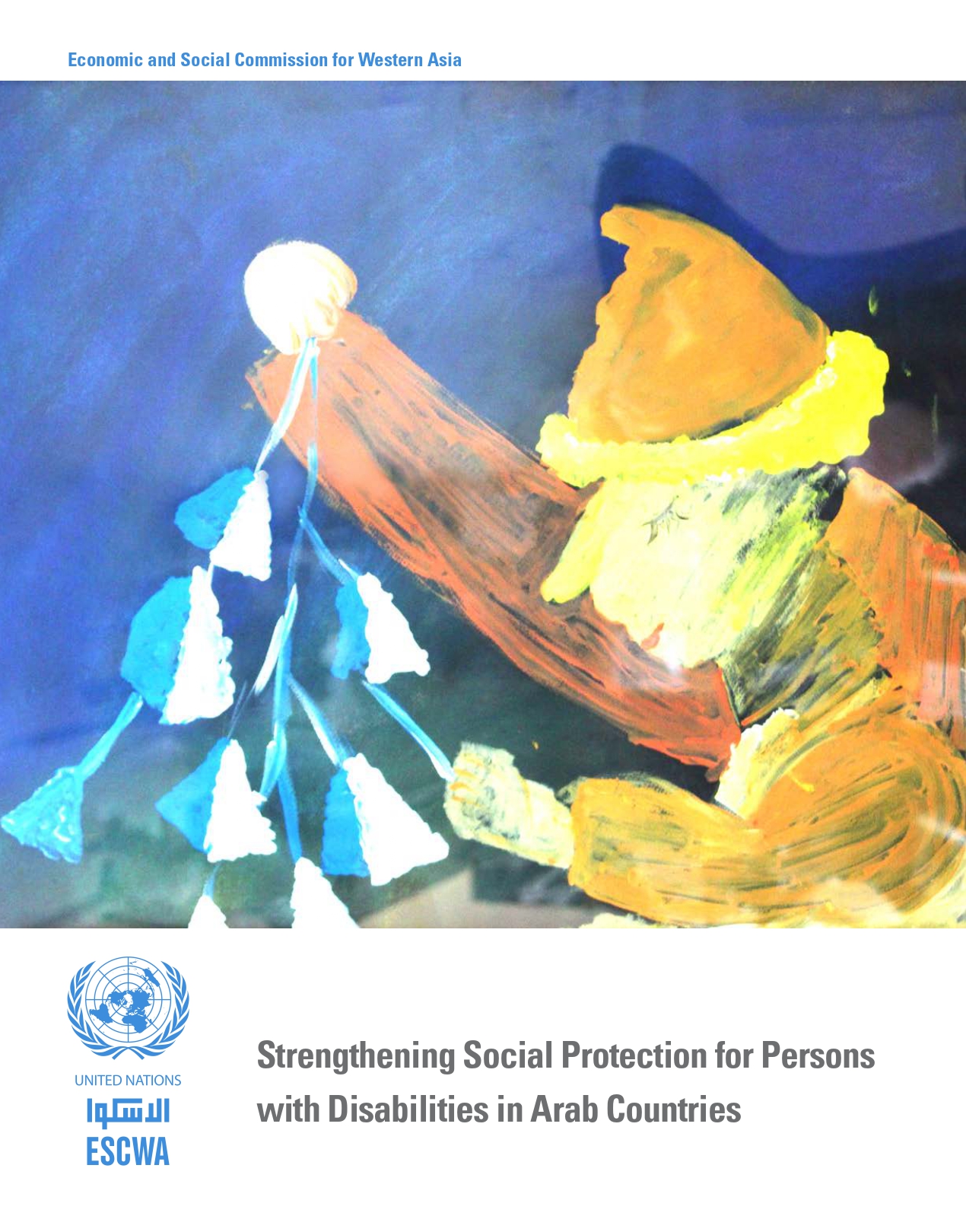
Resource Type: ESCWA publications
Inclusion Topics: Employment and Standard of Living
Member States: Regional
Table of contents:
Social Protection for Persons with Disabilities in Arab Countries
Persons with disabilities in the Arab region, as elsewhere in the world, are one of the most marginalized and excluded population groups. They are often not visible in public life, as the social and physical environments remain inaccessible, and they are disproportionally affected by crises and disasters. Reporting on the ongoing violent conflicts across the region is largely silent on the plight of persons with disabilities, who are unable to run away from destruction, unaware of dangers facing them, or even left behind by their families. It is important to keep in mind that for each person killed, many more are severely injured or permanently disabled.
Arab countries are committed to improving the situation of persons with disabilities, as shown by the fact that most of them have signed, ratified or acceded to the Convention on the Rights of Persons with Disabilities (CRPD). However, implementing legislation and realizing ambitions often proves challenging, and the exclusion of persons with disabilities is in part self-perpetuating. Inclusive social protection is critical in order to overcome these challenges. Importantly, though, social protection needs to be an integrated component of the larger development agenda. Moving from the charity model to a rights-based one will empower persons with disabilities in the Arab region. Better social protection can foster the shift from a “not able to work” approach to “social participation”.
This report presents an overview of social protection for persons with disabilities in Arab countries through the prism of the 2030 Agenda. Doing so; it focuses on social insurance; social assistance and health care.
Social protection for persons with disabilities presented in this report follows the structure and requirements of the Social Protection Floor (SPF) as layed out in Recommendation 202 of the ILO. At the same time, it shows that social protection systems need to be well integrated into the broader policy framework beyond social protection policies. The 2030 Agenda and the CRPD both refer to complex inter-linkages of political objectives, which are particularly challenging in the case of disability policy.